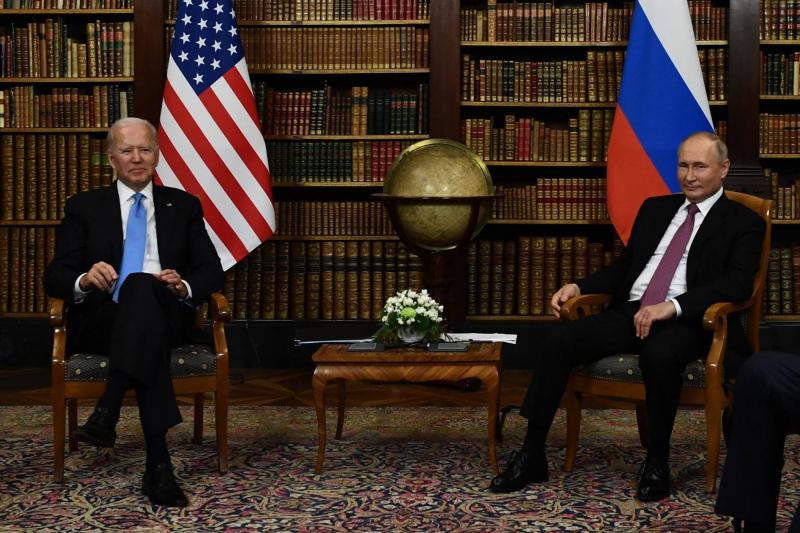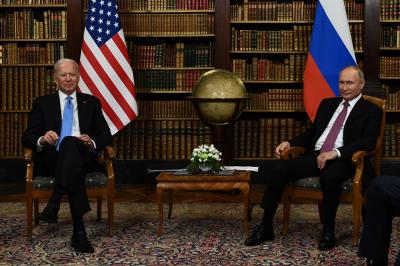The exchange of threats was the main highlight of the virtual summit that brought together U.S. President Joe Biden and Russian President Vladimir Putin, amid the escalating crisis at Ukraine’s borders. Biden stated that his country would respond forcefully to any Russian invasion of Ukraine, emphasizing that "de-escalation" is essential for a diplomatic resolution to the crisis. In contrast, Putin warned against imposing new sanctions on Russia, considering it a grave mistake.
This virtual summit was the second between the two leaders in less than a month, with Ukraine being the primary topic, especially in light of Western reports indicating Moscow’s intention to invade its western neighbor by the end of January. Russia denies planning to attack Ukraine, asserting its right to move its troops on its territory as it sees fit.
Biden is expected to have informed Putin that there are ways to resolve the crisis diplomatically, while also reminding the Russian president of the consequences of military invasion, according to the "National Interest" military and strategic website. Prior to the meeting, a source told CNN that a U.S. spy plane flew over the Ukraine-Russia border to assess the military situation on the ground.
However, there has been no evidence from the summit that tensions are easing, particularly as officials from both sides kept the details of the discussions confidential, which were initiated at Putin's request. The central question remains: Will this summit successfully defuse the crisis and prevent war?
According to the "National Interest," the outcome depends on three rounds of negotiations scheduled for January, describing these negotiations as "high-stakes." The Putin-Biden summit serves as a prelude to bilateral talks set to begin on January 10, which will be led by U.S. Deputy Secretary of State Wendy Sherman and Russian Deputy Foreign Minister Sergey Ryabkov.
On January 12, there will be a meeting of the NATO-Russia Council, followed by a meeting of the Organization for Security and Co-operation in Europe the next day. U.S. State Department spokesperson Ned Price stated, "There will be areas where we can make progress, and I am sure there will be areas where we will differ."
Preceding the upcoming negotiations was a draft document released by the Russian Foreign Ministry earlier in December, which contains comprehensive security demands. The document, divided into two sections, calls for the signing of separate binding agreements with the United States and NATO, encompassing legal guarantees against NATO's eastward expansion and a ban on deploying foreign troops in former Soviet states.
So far, there are no indicators showing NATO's intention to deploy forces in Ukraine, while alliance officials have dismissed the idea of prohibiting Ukraine's entry into the military bloc.
The Kremlin has stated it expects "swift results" from the upcoming negotiations, mentioning military responses if the West rejects the Russian demands to be presented in the discussions. This implies that the January negotiations, based on the Putin-Biden summit, are crucial in avoiding escalation and the possibility of war.
Ukraine anticipates an invasion in late January, while Russian military experts suggest that Moscow may resort to deploying strategic weapons in allied countries like Belarus and Serbia.




